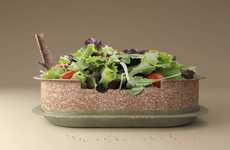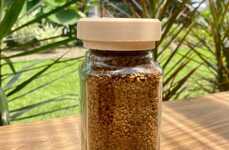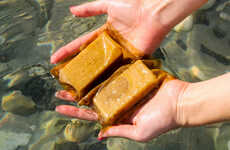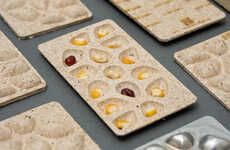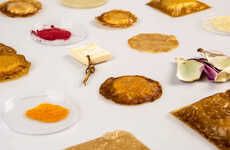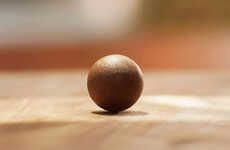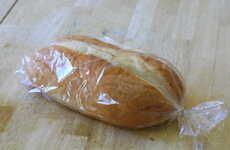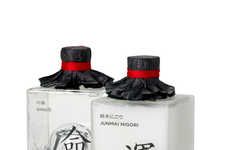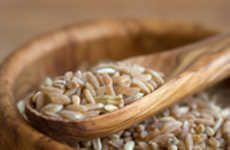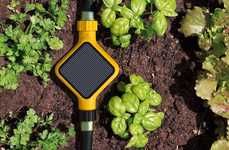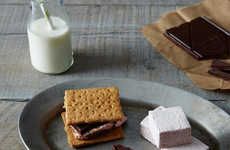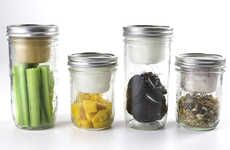Botia Nests for Food Make Use of Organic Waste to Reduce Produce Losses
Amelia Roblin — November 14, 2013 — Eco
References: red-dot.sg
Very little can be said against the concept of these Botiá Nests for Food. Very much unlike the typical production equation, the manufacturing of these containers actually reduces the wasting of materials. Made in Brazil from local manioc flour and coconut fiber, these 100% biocompatible capsules make use of scraps and curtail the spoiling of agricultural products.
Natalia Chaves and Manuela Yamada's eco idea earned them a Best of the Best title within the 2013 Red Dot Design Award competition. It makes use of discarded coconut husks that are easily molded with an organic adhesive to become custom cartons for fruits, vegetables and eggs. Botiá Nests for Food have a protective and cushioning effect that will begin to cut the 80% losses of fresh produce during transportation.
Natalia Chaves and Manuela Yamada's eco idea earned them a Best of the Best title within the 2013 Red Dot Design Award competition. It makes use of discarded coconut husks that are easily molded with an organic adhesive to become custom cartons for fruits, vegetables and eggs. Botiá Nests for Food have a protective and cushioning effect that will begin to cut the 80% losses of fresh produce during transportation.
Trend Themes
1. Sustainable Packaging - The use of coconut fiber and manioc flour to create biocompatible capsules represents an opportunity for companies to explore sustainable packaging options.
2. Reduction of Food Waste - The Botiá Nests for Food can help reduce the 80% losses of fresh produce during transportation, presenting an opportunity for businesses to tackle food waste.
3. Organic and Biodegradable Materials - The use of coconut husks to create custom cartons for fruits, vegetables, and eggs represents an opportunity for companies to explore the use of organic and biodegradable materials in their products and packaging.
Industry Implications
1. Food and Agriculture - The Botiá Nests for Food present an innovative opportunity for the food and agriculture industry to reduce produce losses during transportation.
2. Packaging - This eco-friendly packaging alternative represents an opportunity for the packaging industry to explore organic and biodegradable materials for their products.
3. Sustainability - This innovation is an opportunity for companies to demonstrate a commitment to sustainability and environmental responsibility in their products and operations.
6.1
Score
Popularity
Activity
Freshness
